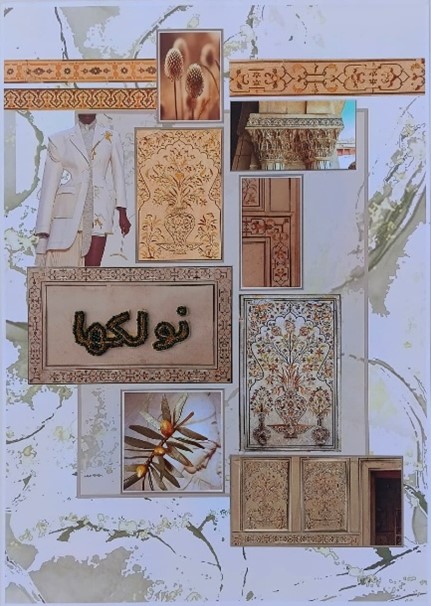A FUSION OF MUGHAL ELEGANCE AND CONTEMPORARY CONVERTIBILITY IN FASHION INSPIRED BY THE NAULAKHA PAVILION
DOI:
https://doi.org/10.71146/kjmr588Keywords:
Mughal fashion, transformation fashion, multifunctional garments, Naulakha Pavilion, sustainable design, modular clothing, historical aesthetics, contemporary couture, adaptive fashion, heritage-inspired fashionAbstract
This research explores the intersection of Mughal heritage and contemporary transformation fashion, focusing on the reinterpretation of traditional aesthetics into versatile, multifunctional garments. Drawing inspiration from the architectural splendour and detailed ornamentation of the Naulakha Pavilion in Lahore Fort, the study integrates historical motifs with modern silhouettes and modular construction techniques to create adaptable fashion pieces. The aim is to honour cultural heritage while addressing the evolving needs of modern consumers, particularly those within Pakistan’s upper middle class. Through a single experimental garment titled Shifting Silhouettes, four distinct looks were crafted, showcasing the transformative potential embedded in Mughal design elements. The methodology combines applied design processes and descriptive analysis to evaluate the garment’s aesthetic, functional, and sustainable value. Research findings highlight how modularity, reversible elements, and silhouette conversions contribute to fashion adaptability, reduce consumption, and offer greater expression of identity. Consumer-oriented design considerations and sustainability are emphasized throughout, aligning historical beauty with ecological consciousness. The study concludes with recommendations for designers to deepen historical research, employ sustainable materials, and engage consumers in the co-creation of transformative designs. This research not only contributes to contemporary fashion innovation but also strengthens the preservation and relevance of Mughal artistic legacy in modern couture.
Downloads

Downloads
Published
Issue
Section
Categories
License
Copyright (c) 2025 Ishma Zahid, Dr. Umer Hameed, Mr Shahid Zaheer, Ms Umbreen Kanwal Dogar (Author)

This work is licensed under a Creative Commons Attribution 4.0 International License.






